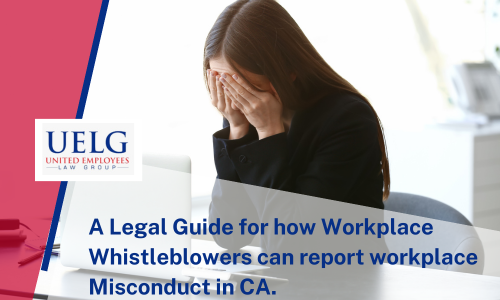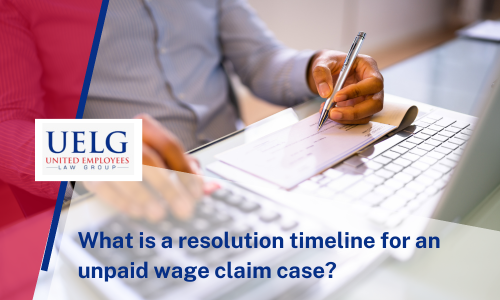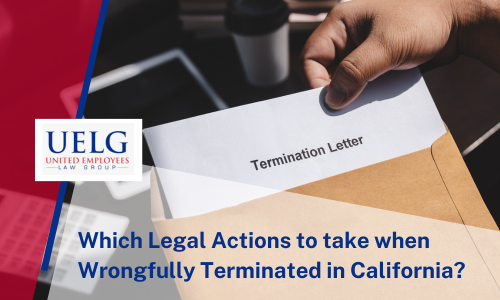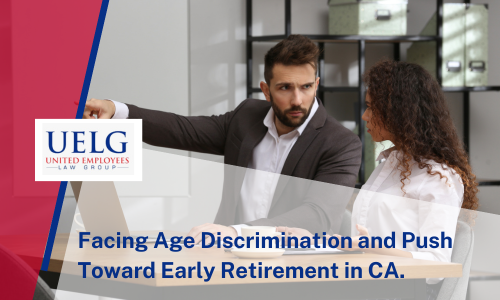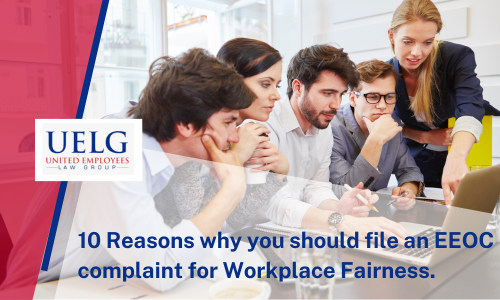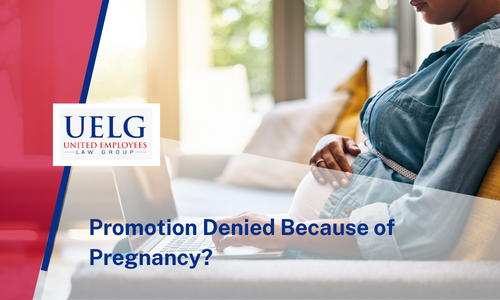Pregnancy discrimination is a prevalent problem in the workplace that involves treating an employee unfairly due to that pregnancy. Being told you’re not being promoted because you are pregnant may be quite distressing. It affects not just the ability to develop in your career, but also your morale and your family’s financial stability. In case you are facing any sort of denial in your promotion and career growth then always remember that state and federal legislation provides for avenues of legal action that you can take. Additionally, you may seek guidance from a pregnancy discrimination attorney at UELG to acquire a comprehensive understanding of the federal and California employee discrimination laws and your rights.
What legislation makes maternity leave mandatory?
Various federal and California laws address the problem of pregnancy discrimination, and make maternity leave mandatory. The federal Pregnancy Discrimination Act of 1978 HYPERLINK “https://www.eeoc.gov/statutes/pregnancy-discrimination-act-1978” and other federal laws to include the Family and Medical Leave Act (“FMLA”), Title VII of the Civil Rights Act of 1964, the Americans with Disabilities Act (“ADA”) and the Pregnant Workers Fairness Act, each address various issues related to pregnancy and pregnancy discrimination in the workplace. These laws provide relief to employees who are pregnant and also mothers of newborns, to include necessary time off without encountering bias or being overlooked for a promotion.
In addition, California’s Fair Employment and Housing Act (“FEHA”) applies to employers with five or more employees (other than religious organizations and nonprofits), and makes it unlawful for employers to discriminate on the basis of pregnancy. The FEHA also requires that employers provide reasonable accommodations to employees disabled by their pregnancy, to include time off for prenatal care medical appointments, help with harder physical duties, more frequent breaks and other job modifications, a period of leave under certain circumstances, and any other reasonable workplace adjustments that will allow pregnant employees to continue working as safely and effectively as possible. California law also provides pregnant employees and those with newborns with additional leave and other protections, to include California’s Pregnancy Disability Leave Law (“PDL”)(employers with 5 or more employees), the California Family Rights Act (“CFRA”) (50 or more employees), the New Parent Leave Act (“NPLA”)(20 or more employees), Lactation Accommodation (Labor Code §1030)(all employers), California Paid Family Leave (“PDL”)(covered employees though state program), and California State Disability Insurance (“SDI”) program.
Individuals who encounter maternity leave discrimination in California are urged to promptly record such incidents, collect evidence, and report the discriminatory behavior to the human resources department. Seeking legal advice from a Los Angeles pregnancy discrimination attorney is crucial for understanding one’s rights and potential courses of action.
What legal action must you take when suffering denial of promotion due to pregnancy?
When denied a promotion due to pregnancy, individuals have legal recourse as explained below:
- File a Complaint with the federal EEOC or File a Complaint with California’s CRD: To bring a claim for pregnancy discrimination, under California law a complaint must be filed (online, by mail or in person) with the California Civil Rights Department (“CRD”)(formerly the Department of Fair Employment and Housing (“DFEH”)) within three years of the discriminatory act. Or, a right-to-sue letter can be obtained from the CRD to allow a lawsuit to be filed in court against the employer. If you file a claim under federal law, then a complaint should be filed with the U.S. Equal Employment Opportunity Commission (“EEOC”). The CRD or the EEOC will conduct an administrative investigation, and may decide to pursue an action on your behalf. If they take no action, you can pursue your claim by filing a lawsuit in court.
- State Court Case: File a case in state court, with a complaint stating the facts of pregnancy discrimination, to include in stances such as your promotion refusal, and ask the court to provide you with remedies.
- HYPERLINK “https://www.courts.ca.gov/programs-adr.htm” Alternative Dispute Resolution (ADR): To settle the matter outside of court, take into account ADR techniques like arbitration or mediation. By applying these strategies, a mediated conversation can more effectively and collaboratively reach a fair resolution.
Step-by-step procedure to file a pregnancy discrimination case in California and how the law firm UELG will help you proceed with the lawsuit.
To file a pregnancy discrimination case in California, follow these steps:
- Document incidents and gather evidence.
- Talk to a pregnancy discrimination Lawyer
- Proceed to file a complaint with the EEOC or California’s CRD.
- Get approval from EEOC for “Right to Sue” or from the CRD and proceed with filing a lawsuit.
The professional team of discrimination lawyers at UELG focuses on pregnancy discrimination claims in California and is available to help you throughout the legal procedure. Our qualified attorneys believe in offering individualized service, helping to ensure that your case is properly examined, and that your rights are respected. Our pregnancy discrimination lawyer will fight for your civil liberties and help to obtain the compensation you deserve.
Conclusion
In California, denial of promotion due to your pregnancy might be problematic, but you have rights that can be protected by the law. Consult a pregnancy discrimination attorney at UELG at (888) 545-0013 for assistance navigating the complexities of pregnancy discrimination and securing a just and equitable outcome for you and your family. Avoid allowing prejudice to impede your professional advancement by taking measures to regain your employment rights.



